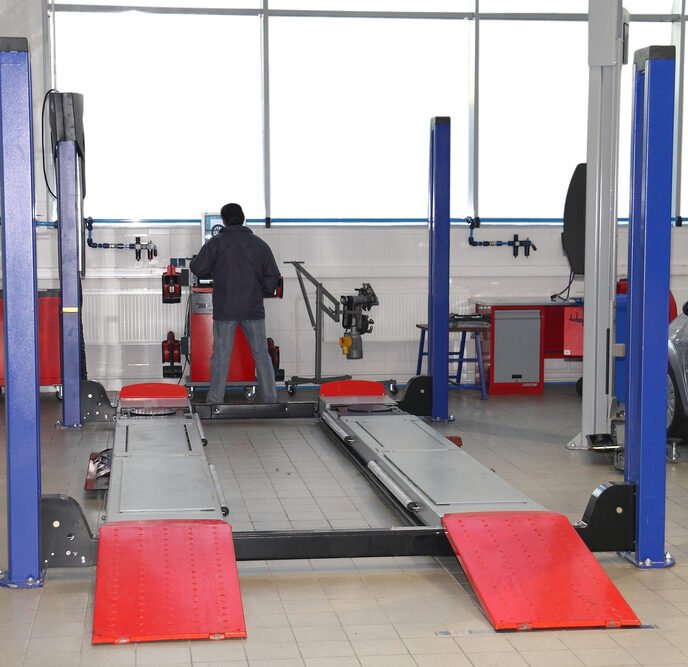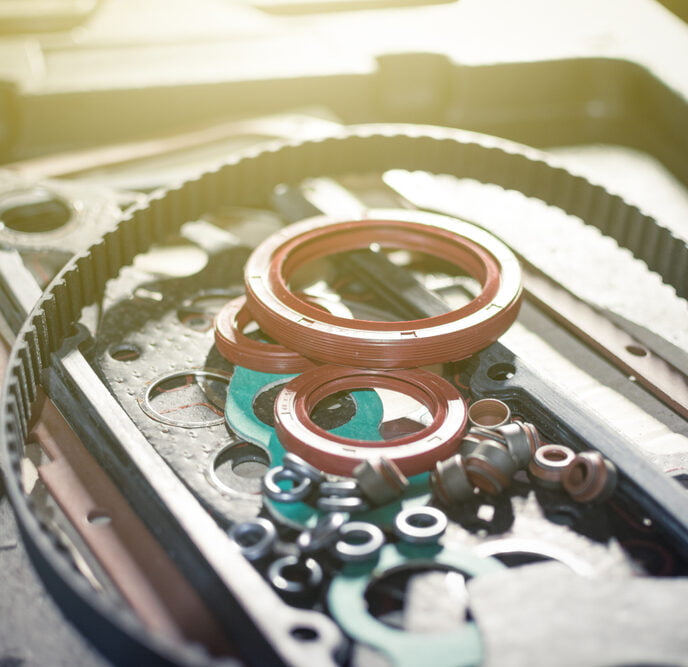How to Manage an Auto Repair Shop

The demand for reliable auto repair shops is growing with car ownership. The 2020 US Census indicated that almost 92% of US households had access to at least one vehicle, higher than in previous years.
If you’ve ever considered owning or managing a repair shop, it’s a good time to do it. However, you need more than automotive expertise to successfully run an auto repair shop.
What Does Auto Shop Management Include?
Managing an auto shop includes overseeing the administrative and business aspects of the shop, from hiring and training mechanics to building relationships with customers.
However, managing your team is a daily task, with administrative needs such as managing vacation, sick time, schedules, and evaluations. With quickly evolving equipment and technology, a shop manager must also ensure that employees are certified accordingly.
An auto shop manager also needs to ensure that the shop’s goals are met, customers are happy, and the shop is making money.
Responsibilities
Managing an auto repair shop requires a lot of responsibility, but you can be very successful if you’re an organized person with good communication skills.
All shop managers must manage their time to meet the customers’ expectations and maintain staff morale, all while meeting the shop’s financial goals.
While responsibilities may vary from shop to shop, some of the most common duties include:
- Hiring, training, and managing employees
- Contacting customers about the status of their vehicles
- Keeping track of service and inventory records
- Maintaining a record of accounts and financial information
- Ordering parts and supplies as needed
- Implementing a marketing plan to promote business
- Focusing on customer retention
- Preparing an annual operating budget
- Forecasting goals and objectives for the department
- Managing and controlling costs
- Establishing relationships with factory representatives
- Overseeing services after repair, such as test-driving and vehicle dropoff
In addition to the above duties, shop managers must know how to store employee records and customer information safely. Also, you must secure all vehicles on the property along with any cash, checks, or credit card information.
Leading a Team
If you’re wondering how to manage an auto repair shop, a trustworthy shop consists of a fantastic team of mechanics led by an honest and motivating shop manager.
While automotive experience is necessary to run a shop, your team is your biggest asset.
Leading your team includes:
- Treating everyone with respect and professionalism
- Sharing the shop’s goals with employees (daily, weekly, monthly, etc.)
- Communicating performance expectations with each team member
- Leading positive and effective team meetings
- Performing employee evaluations and reviews
- Providing a positive working environment
- Giving good pay, benefits, or incentives
- Appreciating employees’ hard work
- Providing high-quality equipment and training
- Providing a safe work environment
- Allowing for communication and feedback from your employees
- Holding your team accountable
- Listening to concerns
- Offering continuous options for growth
Getting the Right Equipment
In addition to automotive expertise, good communication, and solid leadership, securing the right equipment is essential for a successful auto repair shop. That doesn’t mean you have to spend top dollar on every piece of equipment, but you need to ensure that you get the right equipment for your shop’s needs. Usually, the right equipment doesn’t equal the most expensive equipment.
While every shop varies in size and focus, almost every shop will need the following equipment:
Vehicle Lift
An automotive lift is the only way to get under a car to perform routine maintenance and diagnostics. However, before purchasing a lift, you must consider whether you have the space for a 2-post or 4-post lift, the power requirements, and what types of vehicles you’ll be working on.
Air Compressor
Most shops will need a 60- or 120-gallon compressor to operate pneumatic hand tools or lifts. In this case, it’s a good idea to purchase the highest capacity within your budget to have the power you need to operate your tools.
Jacks and stands
A high-quality, high-capacity jack is necessary to support your shop’s vehicles. You’ll also need strong jack stands and pole jacks.
Oil drain and caddy
When you provide oil and transmission fluid changes, your shop will need an oil caddy with a large capacity. In addition, if you plan on working with cars on an auto lift, a standing oil caddy will make your mechanic’s job much more manageable.
Battery charger and jumper
While you don’t need to spend an arm and a leg on this, you also don’t want to purchase the cheapest battery charger available. Since many of your customers will have dead car batteries or charging issues, you’ll want to have a decent jumper and charger on hand.
Engine hoist
If you’re repairing, replacing, or rebuilding an engine, you will need an engine hoist. While you don’t need to purchase the top-of-the-line hoist, you’ll need one with the capacity for the largest engine you plan to service.
Brake lathe
Purchasing a quality name-brand brake lathe will make your brake services more profitable and efficient.
Strut compressor
When working on suspension systems, you’ll want a good strut compressor that is durable and safe. A cheaper quality strut compressor can compromise your safety, so quality is a must.
Air conditioning machine
Your shop will need an air conditioning machine if you plan on recharging, recovering, or recycling A/C systems. In addition, an air conditioning machine will make diagnosing and flushing A/C systems more efficient and reliable.
Press
You’ll need a good press if you ever plan on working with bushings or bearings. A solid press will also bend any metal that you need to shape.
A successful auto repair shop requires good leadership, the proper equipment, and automotive knowledge. Whether managing an auto repair shop for the first time or you’ve been doing it for decades, you know the importance of having a reliable and trustworthy automotive equipment parts partner. With over forty years of auto equipment experience, we have what it takes to help your shop run successfully. So let SVI be your partner- request a quote from us today!


